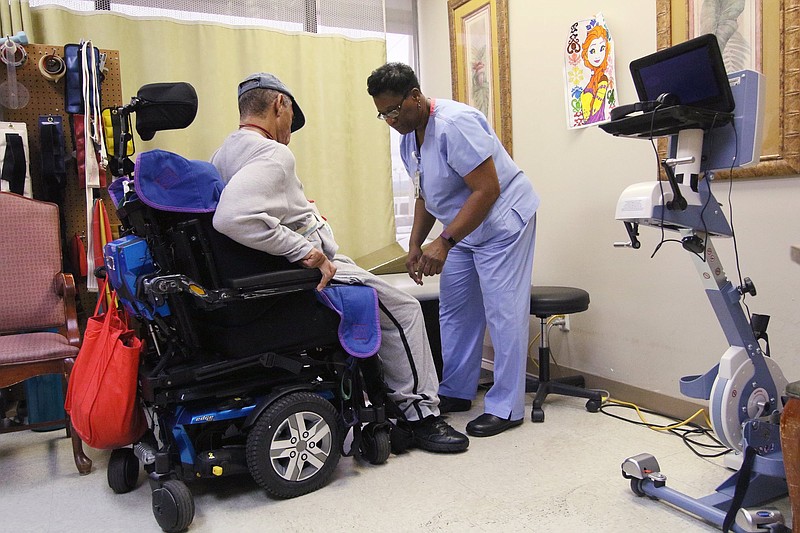Sometimes, people just need a little bit of help. Or help that would seem little to most of us, yet to them it's the difference between lying alone on the floor all night or calling 911 for stronger arms to get them back on their feet or into a chair.
So they call. Or sometimes they don't - not right away. But when they do, all too often the Chattanooga Fire Department would recognize their address, even know the caller by name.
"We get to know these people so well, and they get to know us and how we work. They will try to do everything they can, but we always tell them 'If you need us, call us. We're coming,'" Fire Training Chief William Andrews told the City Council during Tuesday's council meeting. Andrews added that one of these callers, a woman who lived alone, would lay on the floor all night after falling. She didn't want to wake up the firefighters, so she'd wait to call 911 after the morning shift change.
It was another frequent caller, Jeffery Henson, a 57-year-old who lives alone with a genetic neurodegenerative disease that affects muscle coordination and balance, who inspired a new approach. The department responded to calls from Henson's medical alert device 72 times in 2017. That figure doubled in 2018, and in January and February of 2019, firefighters were called to help him 109 times.
His simple but intense needs - completely wheelchair bound and difficult to understand, since his disease also hinders his ability to speak and write - prompted firefighters to stop and question what exactly would help him - and them.
It proved to be the start of a new and wonderful - and desperately needed - new program called CFD Connect. The city program seeks to connect frequent non-emergency 911 callers with existing social services that can proactively address their problems - before they turn to calling for emergency help.
Firefighters researched and helped Henson get into the Alexian Brothers PACE program with adult daycare and home health assistance. In the last nine months of 2019, Henson has only had to call 36 times.
In another case, firefighters recounted a story of a nearly blind woman with broken glasses who used to regularly seek help after tripping and falling. Since helping her obtain a new chair and glasses, she hasn't called 911 a single time.
This has been good for her, Henson and plenty more of our neighbors. And it's also good for firefighters and taxpayers.
While firefighters already respond to most 911 calls, including medical emergencies, they don't know what they'll find until they arrive. So, they bring the whole crew and the trappings to respond to pretty much anything, which costs an estimated $260 per one hour of citizen assistance, according to Chattanooga Fire Department data.
That adds up, and as America's population ages, departments around the country are seeing a dramatic increase in non-emergency, citizen assist calls. In Chattanooga, the number of those calls has steadily risen since 2015 - from 804 that year to 1,468 in 2019. And although the fire department might be the first agency to respond, it's not necessarily the best. Often what callers actually need is a new walker, help reaching a medicine bottle, a rug that doesn't slip or health insurance.
Now, with CFD Connect, two interns - graduate students studying social work at the University of Tennessee at Chattanooga - visit those who've recently called the most for citizen assists. Along with firefighters and a community resource guide, the interns figure out why people are needing 911 help and how to meet their underlying needs.
Working 16 hours a week for three months with the 13 most frequent citizen-assist callers, the interns brought down calls from 70 the three months before to 26 - a decrease of 63%.
Chattanooga Fire Chief Phil Hyman expects the use of social work within the department will continue to grow.
"That's where I want to see our next generation of firefighters going," Hyman said this week. "When we teach them their [emergency medical technician] skills, there should be a piece of the social work program inserted in all that - not only are you treating someone for medical issues, but you also have to identify needs when you go into someone's home."
The department plans to request funding for one additional position to support their efforts in next year's budget.
Not only will it be a savings - since fire officials estimate 2019's 1,468 citizen assist calls cost nearly $200,000 - it's also just the right thing to do.
Sometimes people need just a little bit of help.
